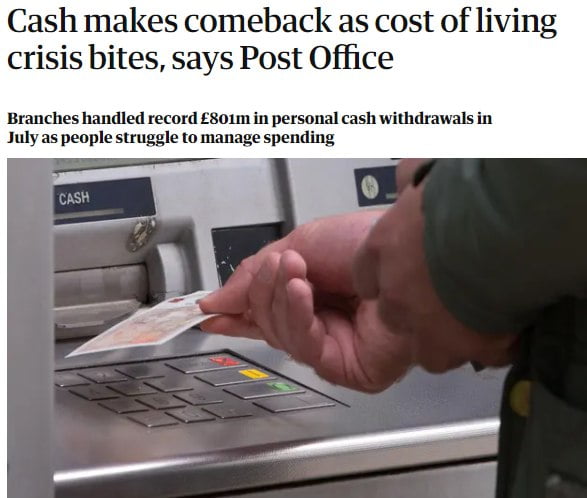In 2021 the UK at the time led by Boris Johnson was the head of the G7 group that is the world’s most economically advanced countries. And at the time the now UK’s prime minister Rishi Sunak was the Chancellor of the Exchequer who took care of the UK’s economy.
At the time Rishi Sunak had put up a video stating the following:
“The group of the world seven most advanced economies the G7 is launching a set of public policy principles for retail Central Banking Digital Currency CBDC’s. CBDC’s could be a digital version of money a bit like a digital bank note.”
At the time the Telegraph had also published a very important article entitled “Bank of England tells ministers to intervene on digital currency”[1]with two very important paragraphs which read:
“The Bank of England has called on ministers to decide whether a central bank digital currency should be “programmable” ultimately giving the issuer control over how it is spent by the recipient;” and
“Digital cash could be programmed to ensure it is only spent on essentials or good which an employer or government deems to be sensible.”
Now I am not going to delve into the topic of CBDC’s again. I have already done so in a series of recent past blogs. I just remind you that once this is implemented the money that you’ll earn from work will be programmed and controlled in terms of your ability to distribute it. This won’t be decentralised currency but it will all be controlled centrally through the banks. They are bringing this about via inflation during which paper money becomes increasingly worthless with banks raising interest rates.
But in this two piece I am going to tackle how the British are fighting this and how are they responding towards this replacement of FIAT paper money after their own country has led the way to replace it with CBDC’s.
When the Conservative Party selected Rishi Sunak as UK’s prime minister it was fully programmed and ready to do the Elite’s bidding. Apart from proposing a central bank digital currency (CBDC) he is also exploring a Bank of England-backed cryptocurrency called “Britcoin”[2]which could come into play across the UK economy by 2025.
It is a cryptocurrency backed by the Bank of England aimed to address the issues bitcoin has.
The response to this was mixed. According to some Britcoin would help streamline the digital transaction process by allowing money to be moved quickly and easily between accounts reducing bank costs. Others are concerned about how a CBDC might affect regulatory methods such as interest rates and the amount of money banks have available to lend.
There are also significant privacy concerns when the state has such a close relationship with individual bank accounts. They would not only have full access to transaction details but they would also theoretically have the power to simply cut off a money supply.[3]
Since Sunak has stated his support for the CBDC and its benefits is he adopting this concept now that he is prime minister? Will the UK up the ante on digital identity considering Sunak’s interests with China?
[1]https://www.telegraph.co.uk/business/2021/06/21/bank-england-tells-ministers-intervene-digital-currency-programming/
[2]https://www.businessinsider.com/crypto-uk-bank-of-england-backed-britcoin-cryptocurrencies-btc-2021-4?amp
[3]https://www.euronews.com/next/2022/10/24/what-rishi-sunak-becoming-the-uks-next-prime-minister-could-mean-for-crypto

